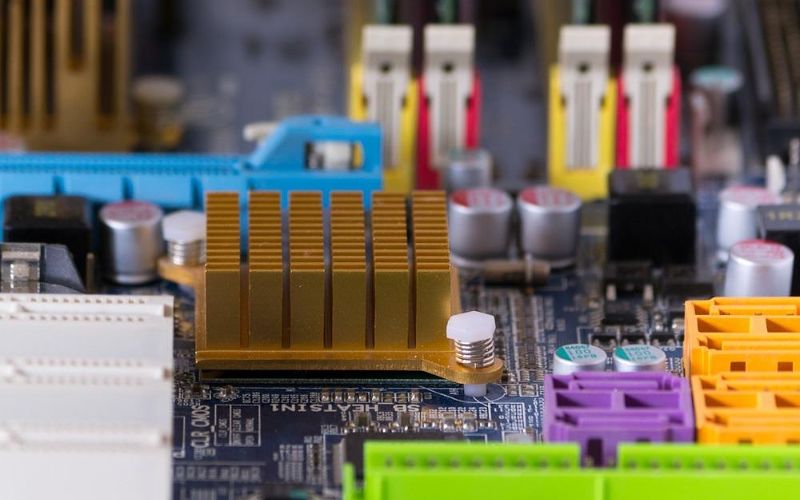The Importance of Heat Sinks
When it comes to electronic devices, heat sinks play a crucial role in maintaining optimal performance and preventing overheating. A heat sink is a passive heat exchanger that absorbs and dissipates heat from a hot surface, such as a CPU or a GPU. Without a properly functioning heat sink, electronic components would quickly overheat and possibly even fail.
Materials Used in Heat Sinks
Heat sinks are commonly made from materials with high thermal conductivity, such as aluminum and copper. These materials are ideal for transferring heat away from the source and dispersing it into the surrounding environment. Some heat sinks also feature heat pipes, which further enhance their cooling capabilities by efficiently transporting heat to areas with better airflow.
The Design of Heat Sinks
The design of a heat sink plays a critical role in its effectiveness. The most common heat sink designs include passive heat sinks, active heat sinks, and liquid cooling systems. Passive heat sinks rely on natural convection to dissipate heat, while active heat sinks use fans to enhance airflow. Liquid cooling systems, on the other hand, circulate coolant through the heat sink to efficiently remove heat.
The Process of Heat Dissipation
Heat dissipation is the primary function of a heat sink. When an electronic component generates heat, the heat sink absorbs the thermal energy and transfers it away from the source. This process involves the conduction of heat through the heat sink's base to its fins, where it is then dissipated into the surrounding air. Efficient heat dissipation is essential for maintaining the temperature of electronic devices within safe operating limits.
Installation of Heat Sinks
Proper installation is crucial for maximizing the effectiveness of a heat sink. To ensure optimal thermal contact, a thin layer of thermal paste is often applied between the electronic component and the heat sink. This paste helps fill in any microscopic gaps and air pockets, facilitating better heat transfer between the two surfaces. Additionally, securing the heat sink firmly in place prevents movement that could disrupt the thermal interface.
Thermal Management in Electronic Devices
In electronic devices, effective thermal management is essential for preventing overheating and ensuring reliable performance. Heat sinks are a key component of thermal management systems, working in conjunction with fans, heat pipes, and other cooling mechanisms to regulate temperatures. By efficiently dissipating heat, heat sinks help extend the lifespan of electronic components and maintain their operational efficiency.
Advancements in Heat Sink Technology
Advances in technology have led to the development of more efficient and compact heat sink designs. Engineers are constantly exploring new materials and manufacturing techniques to improve heat sink performance while reducing size and weight. Innovations such as vapor chambers and microchannels are enabling higher thermal conductivity and heat dissipation rates in modern heat sinks.
Heat Sink Applications in Various Industries
Heat sinks are not limited to just electronic devices; they find applications in a wide range of industries. From automotive electronics to LED lighting systems, heat sinks are used to manage thermal issues and improve the reliability of components. In high-performance computing and data centers, specialized heat sinks are employed to dissipate the significant heat generated by servers and networking equipment.
Considerations for Choosing a Heat Sink
When selecting a heat sink for a specific application, several factors must be taken into account. These include the thermal design power (TDP) of the electronic component, the available space for installation, airflow conditions, and the desired level of thermal performance. By carefully evaluating these considerations, engineers can choose the most suitable heat sink to ensure efficient cooling and reliable operation.
The Future of Heat Sink Technology
As electronic devices continue to become more powerful and compact, the demand for advanced heat sink solutions will only grow. Future developments in heat sink technology may focus on integrated cooling solutions, adaptive thermal management systems, and enhanced heat dissipation materials. By staying at the forefront of thermal management innovations, engineers can address the evolving cooling needs of next-generation electronic devices.
Quote Inquiry
Contact us!

